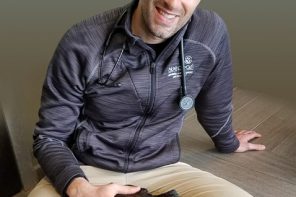To many, it’s like scoring a ticket to a sold-out concert or a championship game. They scan websites early in the morning, put themselves on multiple waiting lists and reach out to connections in hopes of gaining the virtually unattainable — a Covid-19 vaccine. It’s the hottest ticket in town.
And yet, for others, there is a hesitancy to get vaccinated. This includes those with an historical mistrust of the health care system, particularly communities of color; individuals concerned about insufficient data on long-term vaccine side effects; and people convinced by misinformation.
In terms of those living in communities of color, we see this mistrust reflected in various polls. According to one recently conducted by the Kaiser Foundation, 35 percent of Black Americans said they definitely or probably would not get the shot. A report from
UnidosUS, the NAACP and Covid Collaborative found that only 34 percent of Latinos trust the safety of the vaccine and only 40 percent believe it will be effective.
This is all the more remarkable as communities of color have been hit hardest by the pandemic. They have been more likely to catch the virus, more likely to be hospitalized, more likely to die.
We’ve seen this first-hand at Open Door Family Medical Center, where I have served as chief medical officer, for nearly a year now. Our job continues to be to do whatever we can to protect and care for our patients, now it’s also our responsibility to shift the perception and educate our at-risk community members that the vaccines are safe and critical for building the herd immunity needed to end the pandemic.
To reach herd immunity, it has been estimated as much as 80 percent of Americans need to be vaccinated so the virus can’t find enough new hosts.
As with so many things, history plays a key role in the lack of trust. For example, there was the Tuskegee experiment, in which Black men with syphilis were invited to gain free medical care but were not treated so medical professionals could study them. And, there was the sterilization of women in Puerto Rico, where as much as one-third of the female population was sterilized by the government with the goal of reducing poverty and unemployment.
In hopes of alleviating this gap, President Joe Biden has made vaccine access for communities of color a key feature of his $1.9 trillion plan to confront the pandemic. The plan calls for creating more vaccination sites, such as mobile clinics, to get vaccines to hard-to-reach, marginalized communities. The issue is to convince these communities to comply.
Open Door and other federally qualified health centers were founded in low-income communities where few physicians practiced. There is a long history of collaborating with community partners to address health needs, including lack of trust of the healthcare system.
Our job is to make the community we serve in the lower Hudson Valley feel secure, knowing that producers of these vaccines have strictly adhered to the necessary research, protocols and testing. We need to validate legitimate concerns about the safety of these new vaccines, while at the same time highlighting their efficacy and the role they will play in mitigating the spread of Covid-19.
Decades of work — first years ago on the corresponding HIV spike protein and more recently on its counterparts from other viruses, including SARS, MERS and seasonal coronaviruses — showed how best to design and produce the SARS-CoV-2 (that is, Covid-19) version. Sophisticated methods to image the spike proteins via recent advances in electron microscopy allowed researchers and vaccine makers to study what they were making and gain assurances they were on the right track rapidly.
Overcoming vaccine hesitancy is critical at a time when a record number of Americans are being hospitalized and dying daily (an average of more than 4,000). At this rate, it is estimated that as many as 600,000 Americans will die of Covid-19 by the summer. Westchester County has been hit hard, reporting one of the highest rates of coronavirus infections in New York state.
At Open Door, we’ve seen the surge in infections among our own patients. The positivity rate surged to a high of 29% in the final weeks of December, and even now in early February we are still hovering at around a 20% positivity rate. Open Door is currently providing more than 1,000 tests per week.
We constantly remind our patients that the vaccines presently on the market have gone through all phases of clinical trials and have been found to be about 95 percent effective. This is far more than the annual flu vaccine. During these trials, they were given to tens of thousands of volunteers to make sure they were safe. Since receiving the FDA’s EUA (emergency use authorization), they have already been given to more than 30 million Americans, with excellent safety reported to date. In addition, since the vaccines have been administered, there have been relatively few if any negative reactions.
The message is simple and direct: These vaccines are super safe, super effective and the best way to protect yourself and your loved ones.
For more, visit opendoormedical.org.




